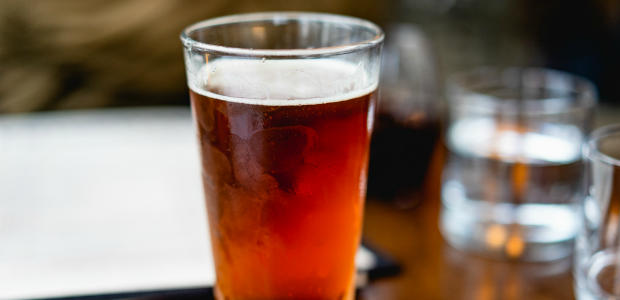This week we’re chatting with Lucy Corne, who’s one of South Africa’s leading craft beer ladies. She’s an editor, writer, beer judge and certified beer sommelier.
What is your involvement in the beer world?
My name is Lucy Corne. I also go by The Brewmistress. I’m the editor of On Tap magazine and the co-founder of the African Beer Cup. I’ve also been writing my blog for eight years and I’ve written two books about the South African beer scene. I have a tendency to occasionally taste some beer as well, and I am Africa’s first certified cicerone (professional beer sommelier).
When did your love for beer begin?
Probably in South Korea. I had met the man who [would become] known as Lucy Corne’s husband and he’d been working in a pub in the UK and started getting into beers. When we travelled together we would seek out microbreweries. When we got to South Korea, we joined the homebrew club and that’s where I discovered the delights of American hops, because a lot of the club members were American expats. We lived just outside Seoul, which has like fifteen million people, and the guy who ran the homebrew club lived in our building, so it was just meant to be. His signature beer was called Death by Hops and it was an imperial IPA. I had never tasted anything like it and I just had this moment where I thought, why have I been wasting my time drinking anything else?
What’s your favourite beer right now?
Right now my wintery beer of choice is Woodstock’s Mr. Brownstone Hazelnut Ale. I think it’s a beautifully balanced beer. It tastes like a Nutella beer without being too much; it still tastes like beer.Beer has long been a male-dominated industry.
Do you think things are changing and if so, how?
Not really. It’s still very much a male-dominated industry. There is gradually more woman moving into the industry, more so overseas than in South Africa. In South Africa, women tend to be more on the sales and serving side than the brewing side. We’ve got probably about half a dozen female brewers. It is changing but very, very slowly.
What has been your most encountered difficulty as a woman in beer?
If I am completely honest, I personally don’t feel like I’ve encountered many difficulties being a woman. I don’t know if that’s because I was around doing what I do right at the start of the craft beer boom in South Africa. So for a lot of the brewers, I’ve always been there. The only time I ever feel like I get any of that is from the average consumer if I am working behind the stand at a festival. Often they assume that I don’t know anything about beer. I’ve seen it with other women, particularly at festivals. There was one guy who said to Carey (partner/owner of Aegir Project), “I don’t want to talk to the pretty face, I want to talk to the guy who brews the beer”. A pretty shocking comment, plus this person was in the beer industry.
If you could change one thing in the current industry, what would it be?
To make it more diverse, and I don’t just mean to get more women in. Craft beer is a very young, white, bearded male domain. It’s not that it’s not a welcoming industry. I think it’s a very welcoming industry. A little diversity would be good, but I have no suggestions on how to achieve that.
What advice would you give to any young woman starting out in the beer industry today?
Not to let the idea that it’s a male-dominated industry get into your head. Just do it. Educate yourself. Read a lot and taste a lot – responsibly, of course. If you go into the industry thinking that this is a male-dominated industry and it’s going to be difficult, then it is going to be more difficult. So just don’t think that. Beer is a fun industry and the vast majority of people are friendly, welcoming, helpful and willing to share knowledge.
What one thing upsets you most about the South African craft beer scene?
Probably that there is still a lot of sh*t beer. Some brewers still seem to be taste-blind and not willing to educate themselves, their palates, or spend money on training for them and their staff. They put beer out there with the ‘it’s supposed to taste like it’s craft beer’ disclaimer. But the scene has improved greatly in the past three years. The quality has improved hugely, but there are still a lot of bandwagon jumpers and they give the industry a bad name. Gradually these people are closing down because as people get savvier about what craft beer is supposed to taste like, the people who are pumping out crap are going to fall by the wayside.
Catch Lucy on her blog The Brewmistress and follow her on Twitter @LucyCorne.

